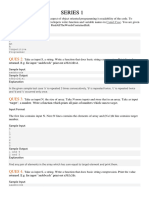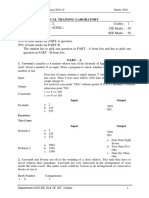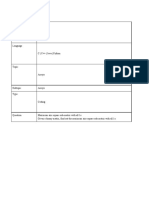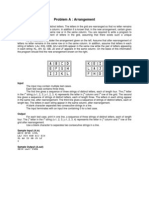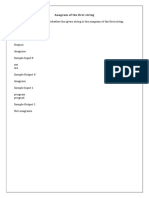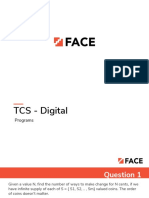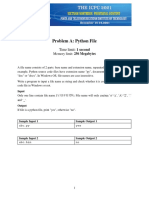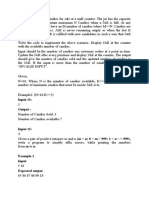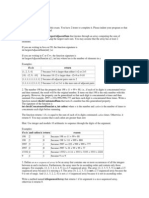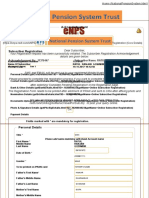0% found this document useful (0 votes)
30 views12 pagesSample Practice Program
The document outlines various programming problems and their requirements, including finding pairs in an array with a given sum, generating a triangular seating arrangement, checking for substrings in binary strings, and simulating a bean machine. It also includes tasks such as determining distinct characters from a string, checking for consecutive numbers, and calculating shipping costs based on weight. Each problem provides input and output formats along with sample test cases for clarity.
Uploaded by
Swastika SoniCopyright
© © All Rights Reserved
We take content rights seriously. If you suspect this is your content, claim it here.
Available Formats
Download as PDF, TXT or read online on Scribd
0% found this document useful (0 votes)
30 views12 pagesSample Practice Program
The document outlines various programming problems and their requirements, including finding pairs in an array with a given sum, generating a triangular seating arrangement, checking for substrings in binary strings, and simulating a bean machine. It also includes tasks such as determining distinct characters from a string, checking for consecutive numbers, and calculating shipping costs based on weight. Each problem provides input and output formats along with sample test cases for clarity.
Uploaded by
Swastika SoniCopyright
© © All Rights Reserved
We take content rights seriously. If you suspect this is your content, claim it here.
Available Formats
Download as PDF, TXT or read online on Scribd
/ 12

